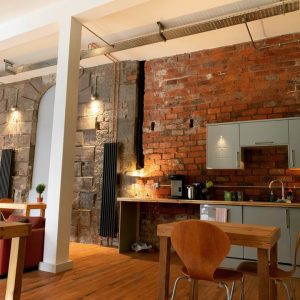When it comes to investing in property, there are several different strategies available. One strategy (that you may have hear us talk a lot about) is to invest in a commercial multiple occupancy (CMO). This type of investment can offer several advantages including the potential for high returns and the ability to diversify your portfolio. It can, however, be difficult to know where to start.
Here are some questions that you might find yourself asking if you’re new to the world of the CMO.
- What is a CMO?
- Why would I invest in a commercial property?
- What do I need to consider before investing in a CMO commercial property?
- Who should I speak to about a CMO commercial property investment?
- I’ve identified my strategy and formed a network – now what?
- OK, I think I’ve found a suitable premises. Now what?
- What should I keep in mind when visiting a site?
- I’m ready to put an offer in, how should I do it?
- My offer has been accepted, and I’ve got the keys! What are the next steps?
- What should I put in my CMO?
What is a CMO?
A CMO is a type of commercial property that is leased out to multiple tenants. It can be anything from an office block to a retail centre.
The key advantage of investing in a CMO is that you are effectively spreading your risk across several tenants.
This means that if one tenant defaults on their rent, you will still have other tenants who are contributing to your income.
Why would I invest in commercial property?
Put simply, if you are looking to invest in bricks and mortar property then a commercial multiple occupancy building can offer a significant rental income with a combination of good investment, a good source of advice from property investors to help guide you through the market, and a healthy dab of creativity and understanding of how to add value to the property.
Whereas the rental income for a buy to let residential property will be heavily limited by the value of surrounding properties, commercial properties will often have a higher rental yield as the potential return of the property investment is more dependent on what value you can add, how you can provide resources and services for tenants and also ways in which you can manage the costs and outgoings of the building.
Tax rules on residential property can also make a commercial investment seem more appealing. Tax and stamp duty may make a residential property investment a proposal with less potential return on your investment, but commercial property may provide you with much more opportunity to add value, depending on what property you are looking at.
Lease terms

The average lease length can differ between the types of properties that you look at. Large high street shops with a single tenant may have a long-term lease with quite some time between break points for either party.
Coworking spaces can have very short term leases which presents an opportunity to develop part of the property sooner, thus adding value and providing the opportunity for additional rental income.
Commercial property investment can be managed in such a way to bring in enough rental income from your office space to offer financial freedom, where your lifestyle is supported from your investment and the rental yield you receive from it.
What do I need to consider before I invest in commercial property?
Investing in commercial property can be a daunting, emotional, exciting, and time-consuming experience. There is so much to think about before you make a commercial property investment that you may not have considered.
First of all, what costs will you be looking at? Do you need advice on generating a strategy? Will you need angel investors for financing your plans for a building? How else can you raise funds if you require it?
Costs
In terms of cost, we’re not just talking about money here. It’s also how much time you’re willing to put in, how long-term you’re willing to see to receive your return on your property investment and also mentally how much head space you can offer to a project.
As for advice on generating a strategy, snuffling out opportunities, and looking for funds, a lot of this will come down to your network of support.
Support network

Investing in commercial property benefits from being surrounded by similar, like-minded people who have been there, done that, got the t-shirt, and can also put you in touch with people who may be able to help.
A network of investors from within the commercial property market, coupled with plenty of advance homework, will allow you to make the most of your commercial property investment and maximise your rental yield.
Who should I speak to about commercial property investment?
First of all, it’s wise to speak to someone with knowledge of how it works.
Spending a bit of upfront front to learn as much as you can is a very wise plan as it will help you in developing your strategy, understanding the risks and potential rewards of direct investment in bricks and mortar commercial property, what type of property you’re looking for, how best to earn money from your premises and a lot more.
Speak to others
In terms of your strategy and what type of commercial property you’re looking at, it really helps to get that key insight from someone who has been there and done that.
A high street shop may have an existing business in on a long lease and if that doesn’t work as a good investment for you, then you may want to look at an industrial area, shopping centres, somewhere within the city, a secondary town or even (if you have the time and resources) an empty building that requires some amount of work.
There are so many properties to consider, and it may be tempting as a new investor to buy now and figure out the ‘hows’ and ‘whys’ later. Having a strong strategy that you know from the benefit of an experienced investor is sound will help keep you focused.
Speak to property companies
It may also be wise speaking to local property companies. Many property companies have a commercial department, and it could be fruitful to build dialogue with them.
The more of a network you build, the more likely you are to become aware of opportunities, not just in bricks and mortar but in time opportunities to develop your rental income, the value of the property, and new ways to gain a return on your investment.
Build your knowledge

It may well be worth attending one of our intensive CMO courses and making it a habit to listen to our podcast to help give you the best opportunity to surround yourself with the right people and to give you the best knowledge base you can.
When it comes to commercial property, the more you know the better.
I’ve identified my strategy and built a network, now what?
It’s time to hunt out opportunities. The pool of opportunities in the commercial property investment market isn’t particularly transparent but this can be to your advantage as fortune can favour those who are willing to work hard to find premises that others may not have come across.
A lot of this will come from networking and keeping an open mind.
Make site visits
The best thing to do is to make several site visits. Get visiting premises and get used to asking questions, get a feel of what you are looking for and build that understanding of the property market in your area over a period of time. Make it your personal business to get your knowledge level as high as you can.
You’ll find that the best property investors – the ones who just seem to have a knack of snuffling out the best opportunities from what seems nowhere – have made it their business to never stop learning, growing their network of fellow commercial property investors and will ask for advice, help or guidance where they feel they need it. Investment not just in real estate, but in self development too.
Put the legwork in
As with many things in life, the investors in commercial property that come across as incredibly lucky or have a ‘sixth sense’ in finding property are just very hard working. As much as it would be nice to think that a four leaf clover and a lucky pair of socks may be enough to get you ahead, this is a massive opportunity.
Not everyone can run faster than Usain Bolt, be funnier than Kevin Bridges, or play tennis better than Andy Murray. You can, however, work as hard as anyone else, if not more, and this will pay dividends when it comes to hunting out commercial property.
Got five minutes to take a diversion through an industrial estate? Got a moment’s headspace to look at “for sale” signage outside a building and make a mental note to look into it when you can? Got half an hour in the car? Stick on a commercial property podcast and use the time to develop yourself so you’re really in the mindset and know what to look for.
OK, I think I’ve found a suitable building. What next?

If you think you’ve identified a potential opportunity, it’s wise to do some groundwork first. Look for similar properties in the area, what they’re offering, and how they’re doing. When investing in offices in Livingston back in 2002, a lot of people said that there wasn’t a demand for office space (and indeed there was a low occupancy rate amongst some commercial properties in the area) but after scratching the surface there was indeed a demand for much smaller office space.
This led to catering for this previously unlistened to market and creating a coworking space that was suitable for smaller business customers.
If you listen to the local market, figure out what relationship is required between landlord and tenant and create a space that is going to fulfil their needs, you may find that you attract businesses that other investors looking to increase their rental yield haven’t even considered.
All of this will help you not to just consider a value of the property, but a potential value of the space available once you’ve considered how to increase that value.
Look at the layout
When you’ve arranged a viewing, make a number of considerations on how the space is currently laid out. Is the space attractive to potential customers in terms of size, natural light, facilities, or will work need to be done to this?
Are the areas of travel reducing the efficiency of the space? Could you move staircases, storage, even toilet or kitchen facilities elsewhere on a floor to open up more rentable space that could increase the potential money coming in from your investment?
If there is already a customer in the space, is the lease agreement hurting your potential return? Are there break terms available if so?
Look at utilities
Even things like looking at heating systems can make a difference. If the heating systems are old and inefficient, how much money could you save by upgrading these and how much more profitable would it make your investment?
Opportunity can be found in every nook and cranny of a building and if you know how to seek it out then you’ll be making yourself a better investor instantly.
Two vital questions
Put simply, you need to be asking yourself two very important questions:
- “Will this property fit in with my strategy?”
- “Does this property have the potential to achieve my goals in terms of return on investment?”
If the answer to either is “no”, then you seriously need to consider walking away from the deal.
If you’re working hard enough, networking well and improving as a property investor then more opportunities will come along.
What else should I keep in mind when visiting a site?
It’s important not to turn up your nose at an opportunity. It doesn’t have to be the best looking, it just has to be right.
You’d be surprised at the amount of times that someone may alert you to a premises that they can’t see an opportunity in, only for it to turn out to be filled with potential.
This is the beauty of commercial property investment. As so much of it comes down to creativity and the ability to see opportunities to add to the value of the property, you may have an idea that nobody else has seen.
Keep an open mind at all times.
Put in the homework

Similarly, don’t allow yourself to be swept away by a property either. Always do your homework.
Once you’ve got an offer in, get the survey done. Things can pop up out of nowhere that may scupper a deal at the last minute so always be prepared to disengage from the deal until you’re legally committed.
Be sure to ask lots of questions and sound interested in the project of renovating commercial property. You want to build that rapport and sound engaged and although we all want to know what ballpark figure the seller is looking for, you should know the rough value from doing your homework in advance anyway.
If the asking price turns out to be wildly different from what you’re expecting, it’s again maybe time to walk away.
Get the profit and loss
Operational costs will be a large factor to take into consideration. If you can get a hold of a profit and loss on the premises, you can look to see if there are ways you can reduce the operational costs and as a result make the space more profitable.
This could be something as simple as changing cleaning suppliers.
I’m ready to put an offer in, what now?
Consider carefully the value of the property to you.
Spend some time – and lean on your network if it helps – creating what you’re willing to spend and also make sure to be able to make a case for what value the property has to you, and be able to present this to the seller or agent when you put your offer in.
Make your offer official
Also, make sure that you put your offer in through your lawyer, not through email or phone call. Make sure that you add the context of why you’re offering the number that you are too, it helps to frame it in the selling party’s mind as to why their valuation may differ from yours.
Start paying a bit of money
This is when I would start paying for surveys of the building.
Until the ink on the contract has dried, you’re not legally committed to purchase the property and if something comes up in a survey then this can be something used as leverage on the purchase price (or indeed, a reason completely to walk away from the deal).
Don’t get too invested – yet!
With that, as much as it can feel like a scary step putting an offer in, don’t let emotions run away with you.
If something does arise in the due diligence that goes in post offer, put consideration into whether or not this is something that will alter how you view the investment.
Don’t get swept away with the excitement of it and eventually commit yourself to something you’ll later regret, regardless of how badly you want to start your journey in commercial property investments.
I’ve got the keys; what next?
Consider what things you can change quickly to improve the cash flow of your premises. The advantage that CMOs have over a residential property investment is that if you can triple the cash flow of a commercial property, you’re likely tripling the value of it as well.
There are so many simple things you can do.
Look at the outgoings
Have a look at the outgoings for utilities, cleaning etc. and look to see if they could be made more efficient. You’ll often find that if managed by a national agency then there are savings to be made.
Similarly, consider if the heaters, boilers etc. could benefit from being upgraded. A small upfront investment in this may end up saving a lot more money in efficiency in the long term.
This is something that you should do before putting an offer in (if you can get a hold of the profit and loss) but now is the time to start actioning this as it’s a quick way to add value.
Look at sales and marketing

Similarly, evaluate the marketing, the sales process, even the basic visibility of the site. How effective is it?
Are you getting in front of as many local businesses and potential occupants as you can? If someone wants to rent out the space you have, are they finding it easy to get a viewing?
Be flexible
Are you being flexible with your space? If you have one 5,000sq ft space and five potential customers asking for 1,000sq ft spaces, are you going to put two and two together?
Is what you have to offer in keeping with what the market wants?
There are plenty of ‘low hanging fruits’ to tackle in your first few weeks and months to help add a great deal of value to your acquisition without spending too much money.
Get to know your customers
Spending the time to get to know what the market wants before, during and after the purchase process will make your work more efficient at this point too.
If the majority of your customers are wanting a two star space with minimal storage and basic facilities, there’s no point in spending extra money in creating a five star environment.
At best you’ll spend more money than you need to and at worst you may just downright put them off.
Get good at Google

The sales and marketing processes are absolutely vital. If you’re not visible on Google or social media then you’re already fighting an uphill battle.
Good, consistent social media activity will help you reach more potential customers and optimising your website to rank highly on search engines is paramount. If nobody is seeing what you can offer (or even if you exist!) then you’re yelling into a void.
Tools such as Surfer SEO and social media analytics will help you to understand where you can do better.
Make doing business easy
It’s also vital that it is as easy as possible for a customer to get in touch with the person in charge of selling your space (whether yourself or someone else), for them to be able to view the property, and to do business with you.
It’s also vital that they can get the information they need quickly from your website.
The longer it takes to get the information they need, the more likely it is that they’ll look elsewhere. In this instance, time is very much your enemy!
What should I put in my CMO?
One or two boilers, one or two sets of toilets, communal parts of the building which add value to all. Some of your less productive space can be rented out multiple times by creating a shared cost between all tenants.
Communal areas

If you have a communal entrance, kitchen or toilets then although these aren’t necessarily rentable spaces, you can add value to the premises by including these and in turn, increase the potential yield from these spaces.
By taking areas that are perhaps less rentable and finding ways to make them a communal space you can potentially find new ways to add value to your investment.
Offer variety
We have all sorts of types of businesses within our premises, so it’s best to identify a common need as opposed to a common type of customer.
That common need is based around flexibility, the ability to change their space size or offer within a short time frame, the predictability of their outgoings, the ability to interact with others (especially since so many people have been working from home for some time) and also a communal breakout space.
If they look to get their own premises, they’re spending a square foot rate for toilets, breakout spaces, receptions, entrances, and stairwells. If they look at a CMO then this is communal which makes it a more appealing option.
How to increase revenue
You could also end up looking at industrial, retail, office working, even restaurants and cafes but we’ve found that a blend of these can be very beneficial.
Being able to offer storage is a big advantage. By being flexible with your offering you can look at additional income streams. EV charging points, meeting rooms, business lounge memberships, storage, podcast rooms; there are lots of different ways to maximise your rental income. If it’s a service that a business wants, then there may be an opportunity.





